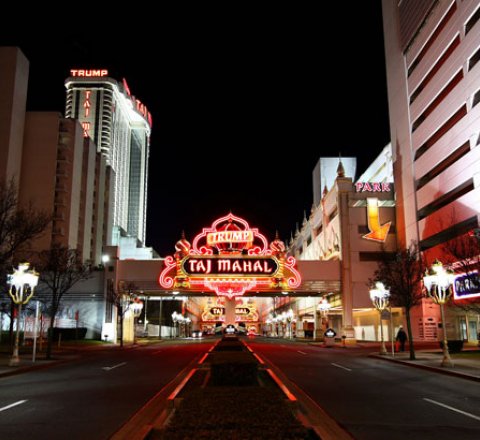If the boom in Internet-related stocks around the turn of the year 2000 taught us anything – it’s that overly optimistic revenues from web-related phenomena are largely “castles in the air”. That’s one thing, though, if you’re trying to sell your already grossly over-priced shares to gullible investors who are treating their shares like a pyramid scheme – trying to pass them to the next hapless investor at a profit without getting their fingers burnt; but it’s quite another when state legislatures behave in basically the same way.
Nevertheless, that’s what seems to have been happening across the U.S. State legislatures who look longingly at other countries’ licensed gambling and gaming revenues and start mentally spending the cash on a few do-gooder social initiatives, a nice infrastructure project here and there so that elected officials with limited office terms can say “that’s MY bridge” and no doubt put in a few big expense claims!
But beware Delaware – and New Jersey and Nevada’s examples – because they may have state officials looking down and shuffling their feet for a while. The truth is that the projections of tax dollars from these three states in re-regulating and licensing gambling, particularly online, have fallen woefully short of their optimistic projections.
During 2013, the three afore-mentioned states decide, in their wisdom, that it would be a great idea to legalize internet based gambling – and they stared to pencil in a few numbers here and there; numbers with too many zeroes at the end of them and a dollar sign in front.
The trouble is that the real revenues just didn’t come anywhere near the projections. In fact, New Jersey’s Treasurer Andrew Sidamon-Eristoff had to inform state lawmakers earlier this year that the results haven’t met “our expectations." No kidding! Here are the figures he was referring to; Jersey officials had initially forecast that legal online gaming and gambling would yield the state’s tax revenues by $180m during fiscal 2014. But then they became a little more diffident – revising the figures down a little – so when Republican Governor Chris Christie signed off the budget the tax dollars figure had been trimmed a little to $160 million.
So by the end of May, when we were just a month away from the end of the fiscal year, and the Garden State had pulled in $9.3 million in tax revenues from online gambling (this according to figures from the
Office of Legislative Services) state politicians had a little egg on their faces to say the least.
One area that might offer a little more hope is that of Bingo. In the UK, in particular, online Bingo for big bucks – or should we say powerful pounds – is big business and is legal everywhere unlike the U.S. where you’ve had it unless you happen to lie in Nevada of course. In the UK, Bingo is close to a religion and it’s growing like Topsy online. Even just ten years ago, there were fewer than 20 online licensed sites operating across Britain. Currently, there are close to 400 according to the portal website whichbingo.co.uk. Some of the biggest names include mainstream TV advertisers such as Mirror Bingo,
CostaBingo.com, as well as the more traditional operators such as bingo hall owners Gala and Mecca. And they aren’t doing it for the fun of it – they’re doing it because the numbers make sense; they make a lot of sense. In fact, playing bingo is one of the least efficient ways of gambling. But by tradition, UK players don’t really play in the expectation of winning. Sure, it’s a big hope and they wouldn’t be playing without the chance, at least, of a major life-changing prize. But people also play for fun only – in demo mode with no money involved. It’s much more about enjoyment and socialization - and yes, that even goes online too.
And all that means lots of revenues for the providers, hence the growing numbers. But it also means a lot of tax pounds – which could be, well, dollars!
Voila! So maybe those other 47 states should consider getting a few bingo sites of their own – or maybe even provide their own? It’s not rocket science and the numbers seem to make more sense anyway.
